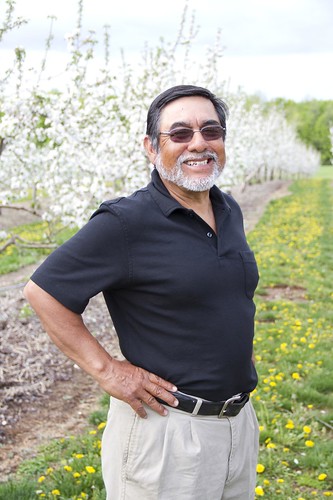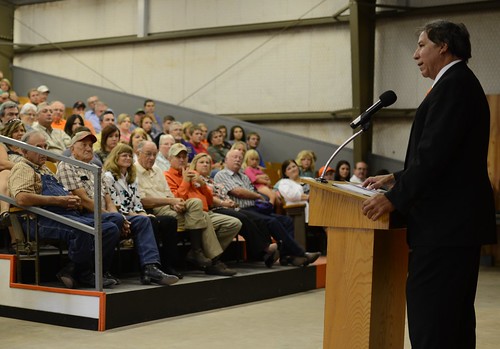
Growing up on a family farm in New Mexico, I experienced the joys of producing your own food and sharing it with others. For many, the opportunity to own a farm or work in the agriculture industry is a dream come true, one that they can achieve if given the right opportunity.
In my position here at USDA, I take great pride in the work we do to help producers like Oscar Vizcarra—who now has almost 5,000 people come to apple picking and other events at his farm on a regular basis—realize their dreams. One of the ways that we will create similar opportunities for the entire agriculture industry is by passing common sense immigration reform, and addressing critical labor issues that are needed to help the industry continue to thrive.
When looking at his business’ success, Becker Farms and Vizcarra Vineyards in upstate New York, Vizcarra credits USDA programs and services with giving his fledgling farm the support it needed to grow and thrive. “I would tell anybody looking to start or own a farm to check out the Farm Service Agency’s (FSA) lending programs,” said Vizcarra. “These loan programs really helped me when I started out 30 years ago. Now, our farm employs 50-80 people, depending on the season—a valuable boost to my small community’s economy.”
Vizcarra is an owner/partner at Becker Farms and Vizcarra Vineyards, a fifth-generation, small family farm that sells fresh produce and a variety of products such as pies, jams, and wines. An immigrant from Peru who was introduced to farming after getting an agriculture degree from Cornell University, Vizcarra and his wife, Melinda, transformed the farm from a more traditional setup into a farm-to-table operation that sells its products directly to customers. He attributes the successful transition to a growing consumer base who wants to know more about the foods they eat.
When he is not on the farm, Vizcarra volunteers his time and expertise to organizations and committees that address agricultural issues. During 2009-2011, he was a member of the USDA Fruit and Vegetable Industry Advisory Committee–a team that represents all facets of the produce industry, making recommendations to the Secretary of Agriculture on its behalf.
During his tenure, the committee discussed a variety of topics, including workforce and immigration issues. Vizcarra often provided insight on how labor policies affect the decision making of smaller producers. He was able to bring to the table a unique perspective about some of these policies, and was a valuable addition to a dialog that has a broad impact on the produce industry. “As a Latino, I know that many of the discussions we had during the committee meetings had an effect on my community,” said Vizcarra. “I wanted to make sure that people understand that immigrant workers are looking for the same opportunities as everyone else. We need to create policies that are in the best interests of these workers and the businesses that employ them.”
USDA works with advisory committees to gain perspective from representatives across the entire supply chain, getting recommendations on how to address key issues the industry is facing. The department works to make sure these committees include businesses of all different sizes and tries to mirror the diversity of the American population. Having a variety of backgrounds, experiences and perspectives at the table, enables the committee to look at each issue from all different angles and recommend the best solution for the entire industry.
As the nation continues its debate about immigration reform, we need to think about the best way to stabilize our agricultural workforce. This includes giving an expedited path to earned citizenship for farm workers who are in this country without authorization. We also need to institute a new worker program that would replace the current H-2A visa program over time, allowing farm workers a three-year visa to work year round in any agricultural job.
USDA values the diversity of the agricultural community, and we are committed to programs that serve all Americans. Whether it’s through offering loans, engaging industry leaders in policy discussions or helping open doors to new business opportunities, our goal is to make sure that we support all of U.S. agriculture.




